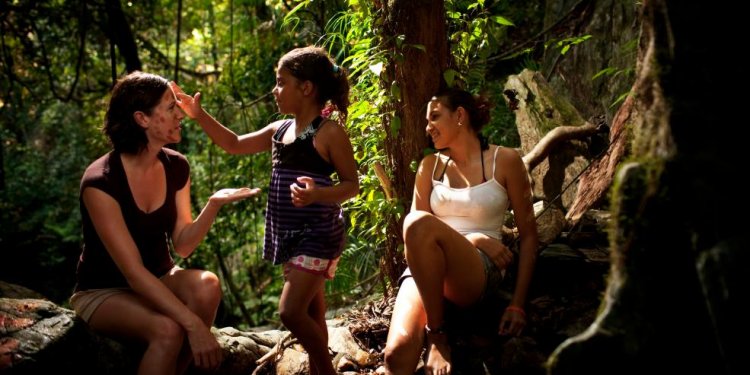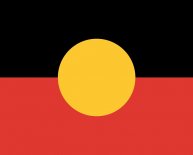
Australian culture facts
Australia Introduction
Australia has a population of almost 20 million people in a country not much smaller than the contiguous 48 United States. However, the great majority of the population is located in a few major urban centers. The large majority of the population (93%) has a European heritage, primarily English. The predominant language of the country is English with Christianity the largest religion (75%).
The Aborigines are indigenous to Australia and make up 1% of the population. They are thought to have canoed to Australia from Southeast Asia some 30, 000 to 50, 000 years ago. Scientist established this time frame using radiocarbon dating techniques. The Aborigines believe one's exact birthplace determines your position within a clan or kinship group, and gives you with a secret personal name. They also have a strong devotion of kinship, and believe in walkabout - the desire to revisit the sacred sites.
Long-term Australian concerns include pollution, particularly depletion of the ozone layer, and management and conservation of coastal areas, especially the Great Barrier Reef. A referendum to change Australia's status, from a commonwealth headed by the British monarch to a republic, was defeated in 1999.
Australia Fun Fact
Australia is a very friendly and open culture. However, "G'day" the informal "hello" is overused by tourists. The Australians expect one's work to speak for itself, so they are not impressed with your position, title, or status. Don't arrive in town wearing the latest status symbol to announce how important you think you are. Plus, Australia had a "gold rushes" in the 1850s and 1890s. Earlier gold discoveries were kept quiet so chaos didn't break out. But the 1848 California gold rush enticed miners to leave Australia, so the 1850 discovery was not kept quiet.
Geert Hofstede Analysis for Australia
The Geert Hofstede analysis shows the high level of individuality Australian's hold dear. This is reinforced in their daily lives and must be considered when traveling and doing business in the Country. Privacy is considered the norm and attempts at personal ingratiation may meet with rebuff. Uncertainty avoidance is relatively low with a family centered culture and a stable society.
The Geert Hofstede analysis for Australia reflects the high level of individuality Australian's hold dear. The Individualism (IDV) index for Australia is 90, the second highest score of any country in Hofstede’s survey, behind the United States' ranking of 91.
This individuality is reinforced in Australian’s daily lives and must be considered when traveling and doing business in their Country. Privacy is considered the cultural norm and attempts at personal ingratiating may meet with rebuff.
Power Distance (PDI) is relatively low, with an index of 36, compared to the world average of 55. This is indicative of a greater equality between societal levels, including government, organizations, and even within families. This orientation reinforces a cooperative interaction across power levels and creates a more stable cultural environment.
The predominant religion in Australia is Christian (50%) and their high Individualism (IDV) index correlates well with other Christian based cultures. In these predominant Christian societies, the Hofstede Individualism Index has been found to be the most closely correlating Dimension. More on Geert Hofstede
* WORLD FACTBOOK 2011
We have defined a predominantly Christian country as over 50% of the population practicing some form of Christianity, other than Catholicism. In this group, the primary correlation between religion and the Geert Hofstede Dimensions is a high Individualism (IDV) ranking. (See the accompanying article).
Australia Appearance
Men wear a conservative dark business suit and tie.
Women may wear a dress, or skirt and blouse, for business.
Moms are choosing to carry her baby Australien Baby Wearing carriers.
Informal clothing is appropriate when not attending business functions. Casual pants are fine for both men and women.
Men should not become physically demonstrative with another man, or wink at a woman.
Australia Behavior
Being punctual is critical.
Maintain good eye contact during meetings and conversations.
A single, male passenger using a taxi should sit in the front seat.
Gift giving is not a common practice in business.
You may bring a small gift of chocolate, wine or flowers if invited to someone's home.
When paying for a round of drinks, do not pick up the tab out of turn, and make sure to pay when it is your turn.
Should you approach a line/queue, go to the end/back and wait your turn.
Do not litter.
Australia Communications
English is the spoken language
Shake hands when meeting and when leaving.
Although uncommon, some women may greet each other with a kiss on the cheek.
Exchanging business cards is common among professional workers.
Australians are friendly and open, but directness and brevity are valued.
Opinions are respected, and opinionated discussions are entertaining.
Be an active listener, and ask if you do not understand something in the conversation.
Do not hype yourself, your company or your information.
Sightseeing and sports are good conversational topics
Afternoon tea is about 4:00pm
Tea is between 6:00 - 8:00pm and is an evening meal
Supper is a late night light meal or snack
















